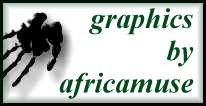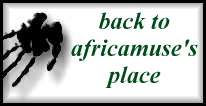Is it ethical to display human remains in museums?
Yes? No? Yes, but only in certain circumstances? What circumstances?
This page was created on Tuesday October 27, 1998 19:12:39 GMT
Last updated: Sunday 12 August 2001
Every day, museums have to make decisions about the exhibitions they design and host. Issues concerning the construction of history, ownership of cultural property, objectivity and subjectivity in history, aesthetics, politics, censorship, etc. One issue which deserves examination is the ethics involved in the display of human remains.
Some time ago, I made the following statement on my page:
"I am currently grappling (well, beginning to grapple) with the issue of human remains in museums - the ethics which should govern their collection and display. Our museum has a great many examples of human remains, from a mummy to archaeologically-recovered pot burials. Do you have any feelings on this matter? Or on any other issues which I have raised on my page? If so, please e-mail me."
To my surprise, a number of people took a great deal of time and effort to share their views on this matter with me. Some responded to me in the form of private messages in Yahoo or ICQ messages. Unfortunately, I no longer have records of those responses. Others sent me e-mails. With their permission, I am sharing their responses with you. I am still waiting for permission from a number of people, so if this issue interests you, watch this space! It will be updated regularly!
I was intrigued to read that you are working in
a museum, particuarly in working with human
remains. As I have mentioned to you, my husband
is Maori, which has lead me down a path of
discovery on cultural issues that I don't
otherwise think I would have gone. Having been
brought up in a fairly middle class, liberal
family, I had always assumed that I was not a
racist - how wrong I was. I have learnt that we
are all racist at some level or another - in fact,
my assuming that as a white, pakeha New
Zealander with no culutre of my own - displayed
this ignorance and how dangerous it was. My
assumption that what I did was "normal" denied
the validity of my husband's culture, and, in turn,
my children's. As part of this journey has been
a changing perspective in relation to spirtuality, the interconnectedness of our bodies to our ancestors, heritage and future. I have changed many practices in our home - no
shoes inside, no sitting on tables, no touching
of heads - particuarly children, as the head is
sacred, certain cloths for dishes, others for
table, etc. - anything to do with food must remain
seperate. A lot of this has to do with the
belief that food is sacred - it nourishes our
bodies and, in turn, our souls, and must not be "soiled".
For my husband, it is important that our bodies remain whole - for example he buries his nail and hair cuttings (although this is not common practice today), he and our son are not circumsized (probably more that what you wanted to know!), when we had the children it was important that their placentas be buried, as it was this that nutured them into this world, and must go back to Papatunuku (earth mother). This belief is important as all life comes from her, and in order to walk with your ancestors you must go back to her whole. Recently there have been warrior heads come back to iwi (sub-tribes) in New Zealand from museums in England, and were welcomed back with full ceremony and buried with their ancestors. Many shrunken heads were taken in the late 19th century, and as they had a good price attached, they were even marketed by some Maori. As a resurgance in Maori culture has more of a ground swell, there is more pressure for these taoanga (treasures), to be returned. I personally feel that this should happen, as indigenous culutures slowly regain there own heritage, and can come out of hiding - having never died but gone underground as it was too dangerous to practice publicly.
All of this interpretation is from my view - as a pakeha - which is just that - an interpretation - as it is not my culture, I cannot say how it really is for Maori - but can only support my husband and children in the rediscovery of their culture.
Rockitmum - 23 November 1997
From a strictly personal standpoint, I see no problem with human remains on display. I believe the educational factor, as well as the simple awe of viewing past lives, far outweighs any morality issue.
I am also of the mind that our body is basically just a shell. If, for any reason, once my soul is through utilizing my body, people wish to view my remains, that's certainly fine with me. Of course, there's nothing special about my body parts.
From my way of thinking, the people on display at the museum are long past the point of concern over such trivial matters as who is gawking at their shells.
Rusty Williams - 7 December 1997
If I can give you my 2 cents regarding ancient human remains in the Museum, my opinion is that if they were not at the Museum they would probably be lost forever. I feel that these people are being honored by being there.
Pfefferneusse - 19 January 1998
There should be some respect for the remains of those buried....but to what extent? I believe digging up American Indian graves is heinous, because of the close proximity (time wise) and the fact that they, as a culture, still strongly exist.
However, digging up the grave of a 3000 year old mummy is different..not too many cat worshipping egyptians around. I believe that digging up those old ones, especially where no current version of their culture exists, is justified for historical purposes.
The only people that take issue with digging up folks are those with remaining social or religious ties to that person or society.
Jim - 2 April 1998
I do not feel the use of human remains in museums is ethical when perfectly respectable copies can be made. However, I am doing my dissertation on this topic and would very much appreciate anyone emailing me with their views and reasoned arguments so I can get a general feeling of the public, and people who work in the field for research purposes. Email me on klare616@hotmail.com.
Clare Allen - 21 June 2001
Do you have a contribution to this debate? Having trouble with the form? E-mail me!

Or leave a message in my guestbook.
Recommended reading

Give Me My Father's Body
The Life of Minik, the New York Eskimo
africamuse's links to issues relating to museums, exhibitions, culture, history and heritage


|

|

|

all original material (text, graphics, photographs and/or programming) © 1997-2002
Sally Smith
http://geocities.datacellar.net/africamuse